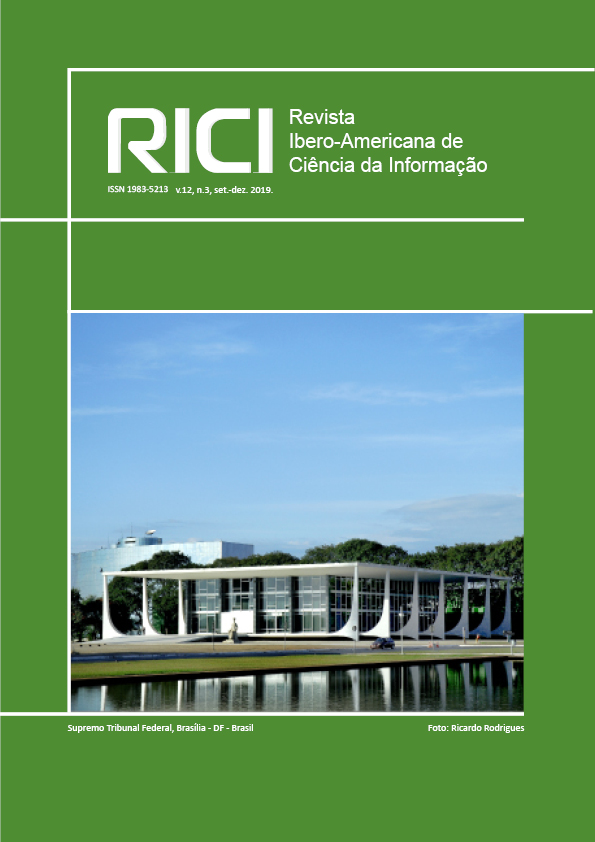Developing a Typology of Human Rights Records
DOI:
https://doi.org/10.26512/rici.v12.n3.2019.24467Keywords:
Human right records. Typology. Archivist. Archival Science.Abstract
What makes a record a "human rights record"? What types of records fall under this umbrella term? How and why might we develop a typology of such records? What is at stake””ethically, theoretically, and practically””in the ways in which and the reasons why we define and classify records as such? This article seeks to answer these questions by delineating a typology of human rights records. First, this article will provide a literature review exploring the history of conceptions of human rights records in archival studies, as well as the ongoing discussion in information studies more broadly about the politics of the organization of information. Next, this paper will outline the chosen methodology of conceptual analysis and describe the ways such methodology will be employed to de/construct the term “human rights record.” This paper will then provide a typology of human rights records, positing that such records can be examined according to five interlocking vectors: who created them, why, and when, where they are currently stewarded, and how they are being put to use. This paper will then analyze two keys examples of human rights records using the proposed typology. Finally, this paper will conclude by examining the ethical, political, and professional implications of the proposed typology and suggest ways in which this rubric can be used in the future.
Downloads
Downloads
Published
How to Cite
Issue
Section
License
Copyright Notice
Authors who publish in this journal agree to the following terms:
- Authors retain copyright and grant the journal right of first publication with the work simultaneously licensed under the Creative Commons Attribution License 4.0, allowing the sharing of work and recognition of the work of authorship and initial publication in this journal.
- Authors are able to take on additional contracts separately, non-exclusive distribution of the version of the paper published in this journal (ex.: distribute to an institutional repository or publish as a book), with an acknowledgment of its initial publication in this journal.
- Authors are permitted and encouraged to distribute their work online (eg.: in institutional repositories or on their website) at any point before or during the editorial process, as it can lead to productive exchanges, as well as increase the impact and citation the published work.
















